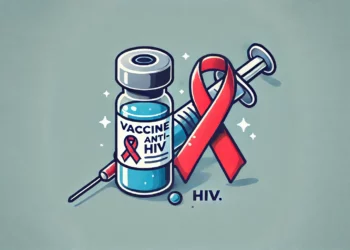Drastically underfunded and facing troubling times, the NHS has decided to cut down on some of their treatments. While some have sparked controversy, the decision to drop homeopathy was hailed by scientists and medical doctors.

The British health system, like most countries in Europe, is drastically different from that in the US: everyone’s insured. The NHS constitution clearly states:
“Access to NHS services is based on clinical need, not an individual’s ability to pay; NHS services are free of charge, except in limited circumstances sanctioned by parliament.”
This system works. A peer reviewed study has recently found the NHS to be one of the best health systems in the world, overcoming those of France, Germany, Australia, and Canada. Among those, the US came in last by a large margin — spending more money for less support. But recently, the UK’s government has subtracted more and more resources from the NHS, starting discussions that they want to privatize the health system and make it more like that in the US. With more and more budget cuts, the NHS is having to give up more and more things.
As a result, they’ve announced new measures which will help them save almost £200m a year ($260 million). According to the draft consultation, homeopathic prescriptions cost NHS England £92,412 in 2016 and more than £578,000 over the past five years. It’s certainly not the biggest part of these cuts, but it’s one that sparked a lot of discussions.
Time and time again, studies have shown that homeopathy doesn’t work — it’s simply no better than a placebo.
“Homeopathy is based on implausible assumptions and the most reliable evidence fails to show that it works beyond a placebo effect. It can cause severe harm when used as an alternative to effective treatments,” said Edzard Ernst, emeritus professor of complementary medicine at the University of Exeter.
“Therefore, it is high time that the NHS stops funding it and instead employs our scarce resources on treatments that are backed by sound science.”
The Royal Pharmaceutical Society (RPS) also praised removing homeopathy “which has no scientific or pharmacological basis from NHS supply” as being “long overdue”. Similar cuts will be made to herbal medicines.
But other cuts weren’t so well received. Several popular drugs, including Lidocaine plasters and anti-depressants were slashed, drawing criticism from the RPS, which says that low earners will be “disproportionately affected”.
The biggest cut will be on Liothyronine, a thyroid hormone sometimes used as an augmentation strategy in treating major depressive disorder, alongside antidepressants. The NHS will save £34.8m on this drug alone. Here are all the proposed savings:
- £19.8m on Trimipramine, an anti-depressant. Again, one of the preferred treatment options for major depressive disorder, especially where sedation is required
- £19.3m on Lidocaine plasters for treating nerve-related pain
- £11.5m on Tadalafil Once Daily, a drug similar to Viagra
- £10.9m on Fentanyl immediate release, used in palliative care
- £9m on the painkiller Co-proxamol
- £7.8m on Doxazosin Modified Release (MR), a drug for hypertension
- £6.3m on omega-3 fatty acid compounds
- £5m on Oxycodone and Naloxone, used to treat severe pain
- £4.5m on travel vaccines
- £4.3m on muscle pain relieving rubs and ointments
- £2.7m on the anti-depressant Dosulepin (formerly dothiepin)
- £2m on Paracetamol and Tramadol Combination product
- £1.5m on Lutein and antioxidants (e.g. vitamin A, C, E and zinc) supplements
- £0.5m on Perindopril Arginine an ACE inhibitor used in heart failure, hypertension, diabetic nephropathy and prophylaxis of cardiovascular events
- £0.4m on Glucosamine and Chondroiton, nutrients taken to improve pain associated with osteoarthritis
- £100,009 on herbal medicines
- £92,412 on homeopathy items






